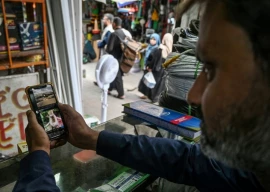
At a time when the fiscal deficit is breaching all records, the government is resisting any increase in local oil prices and electricity rates on political grounds.
However, by doing this the cash-starved exchequer is bound to face serious repercussions given the fact that international oil prices are on a continuous rise, warned a research report released by Topline Securities on Friday.
In January this year, the price of Saudi light crude oil – the benchmark for local exploration and production (E&P) companies – has increased eight per cent to $96 a barrel.
If this trend continues, the Oil and Gas Regulatory Authority (Ogra) meeting at the end of the month to decide local oil prices for February will be crucial in determining the effect on the government budget, according to Farhan Mahmood from Topline Securities.
If the government retains the current price level, it is expected to forgo its Petroleum Levy (PL) – a tax currently levied on oil products, which stands at Rs4.4 per litre on petrol and diesel. The government will take a hit of up to Rs10 billion per month.
According to National Electric Power Regulatory Authority (Nepra) officials, the government has been providing a subsidy of Rs2.8 to Rs3 per kilowatt hour (kwh), which amounts to Rs20 billion a month.
With news coming in that the government might not be able to increase electricity rates every month, it could be difficult for it to cope with such huge subsidies.
Since the government is relying more on furnace oil-based power generation due to the unavailability of gas and hydel generation, a four per cent rise in international furnace oil prices will increase power cost by Rs0.5 per kwh.
This means the government will take a hit of almost Rs4.5 billion a month, which could lead to the monthly electricity subsidy touching Rs25 billion. However, the impact could vary depending upon the availability of gas and hydel power.
With no major external inflows expected, the government will once again rely on local borrowing to bridge the likely fiscal gap of six to seven per cent of gross domestic product (GDP), which amounts to between Rs1 and Rs1.2 trillion.
Published in The Express Tribune, January 15th, 2011.
























































COMMENTS (3)
Comments are moderated and generally will be posted if they are on-topic and not abusive.
For more information, please see our Comments FAQ